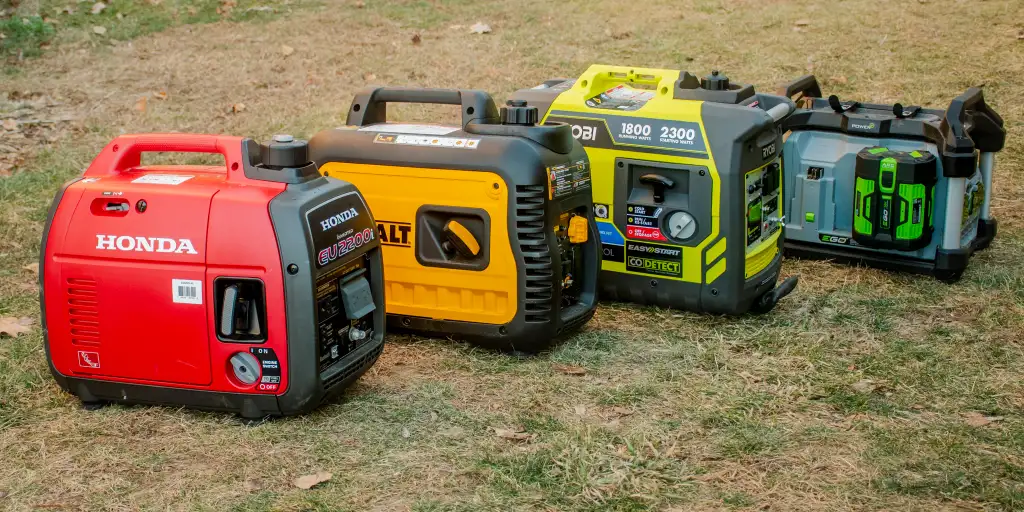A portable generator is a device that produces electrical power from a fuel source, such as gasoline or propane. Portable generators are handy devices that provide power on the go. A portable generator can be a lifesaver during power outages, outdoor activities like camping, or other situations where access to electricity may be limited.
Given the numerous options, it is imperative to identify the optimal choice. These generators are available in various sizes and power outputs, from compact models that can only power a few appliances to larger ones that can power a whole building.
Portable generators are generally less expensive than permanent standby generators, making them cost-effective for providing temporary power. To help you discover the best portable generator, we will walk you through the purchasing process in this post.
Determine Your Power Needs
Determining your power needs is the first step in shopping for a portable generator. List the appliances and devices you want to run during a power outage or outdoor activity.
The wattage of each gadget on this list should be included. Once you know this information, you may calculate how many total watts your generator must produce. A list would help you determine the generator size you want.
Running too many appliances on a low-rated generator would damage it quickly. You can check out the reviews on Generator Pro and see the different ranges of generators they offer.
Choose The Type Of Fuel
Different fuel types can power portable generators, including gasoline, solar, propane, or diesel. Due to its accessibility, gasoline is the most widely utilized fuel for portable generators; however, recently, there has been a surge in portable solar panel-run generators.
Consider which type of fuel is most convenient for you, as you would not want to be stranded looking for fuel to run your generator. You should also consider the cost-effectiveness of the fuel.
In the long term, owning a diesel generator would be more expensive because, for instance, diesel is more expensive than gasoline.
Consider The Noise Level
When choosing a portable generator, it’s crucial to consider the noise level. Look for generators with a decibel rating of 60 or lower, about the level of a normal conversation.
Some generators also have noise-reducing features, such as sound-absorbing materials or mufflers. Prolonged exposure to loud noises is known to damage your eardrum.
If you plan to use the generator in a residential area or close to other people, choosing a generator with a low noise level is imperative. Also, check the regulations of your area, as some don’t allow for loud noise.
Look For Safety Features
Safety features are an important consideration when shopping for a portable generator. Look for generators with automatic shut-off features in case of low oil or overload, which can help prevent damage to the generator and keep you safe.
Also, ensure the generator has a grounded power outlet and circuit breaker protection. The breaker engages in the event of a power surge. Safety features are essential to ensure the generator lasts long and protects you, the user, in an emergency.
Check The Runtime
The runtime of a portable generator is the amount of time it can run on a single fuel tank. Look for generators with a long runtime if you need to use them for extended periods.
Some generators also have an economy mode that can extend the runtime by reducing the power output when it’s unnecessary. The longer the runtime, the less frequently you need to refill the generator. Look for a generator with a runtime of at least 6–8 hours.
Consider The Weight And Portability
Portable generators are meant to be moved around, so it’s important to consider the weight and portability when shopping for one. Look for lightweight generators with handles or wheels for easy transportation.
It’s important for it to be lightweight, especially if there is no one to assist you with carrying the generator. Also, ensure the generator is compact enough to store when not in use. Portability is critical if you use the generator in multiple locations.
Read Reviews And Compare Prices
After you have narrowed down your list of choices, read customer testimonials for similar generators. This can help you understand the advantages and disadvantages of each generator.
Additionally, compare prices to ensure you get the best deal possible. Last but not least, it’s critical to choose a reliable brand and confirm that a warranty covers the generator. Thanks to a warranty, you can rest easy knowing that the generator is protected against flaws and malfunctions.
Conclusion
Buying a portable generator can be a wise investment for providing a backup power supply in emergencies or remote locations. When selecting the best generator for your needs, it is crucial to consider aspects like power capacity, fuel type, runtime, noise level, portability, brand, and warranty.
By conducting your research and comparing different options, you can select a dependable generator that will provide you with the required backup power. Portable generators are a valuable asset to have on hand because they are portable and can be used in various situations.

